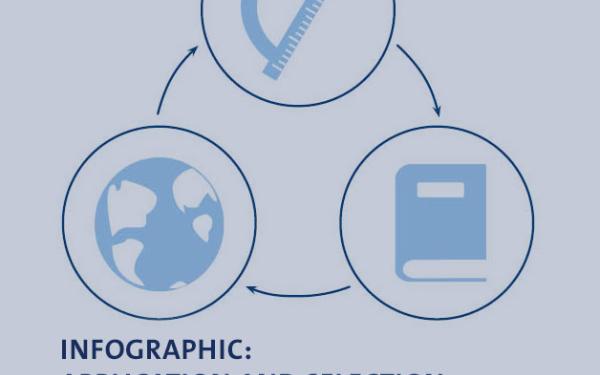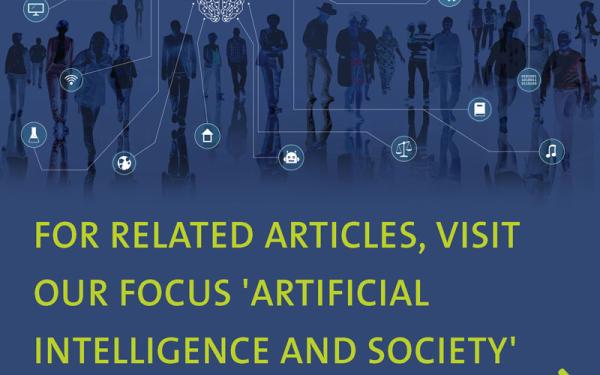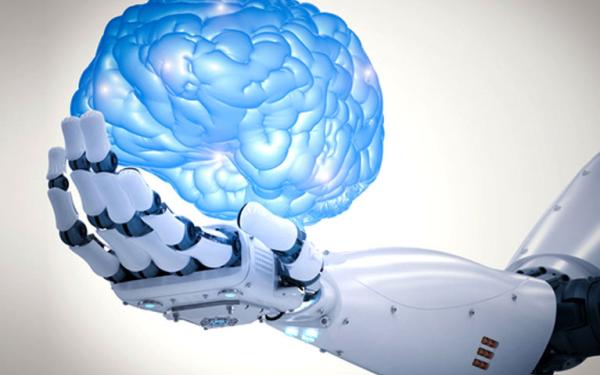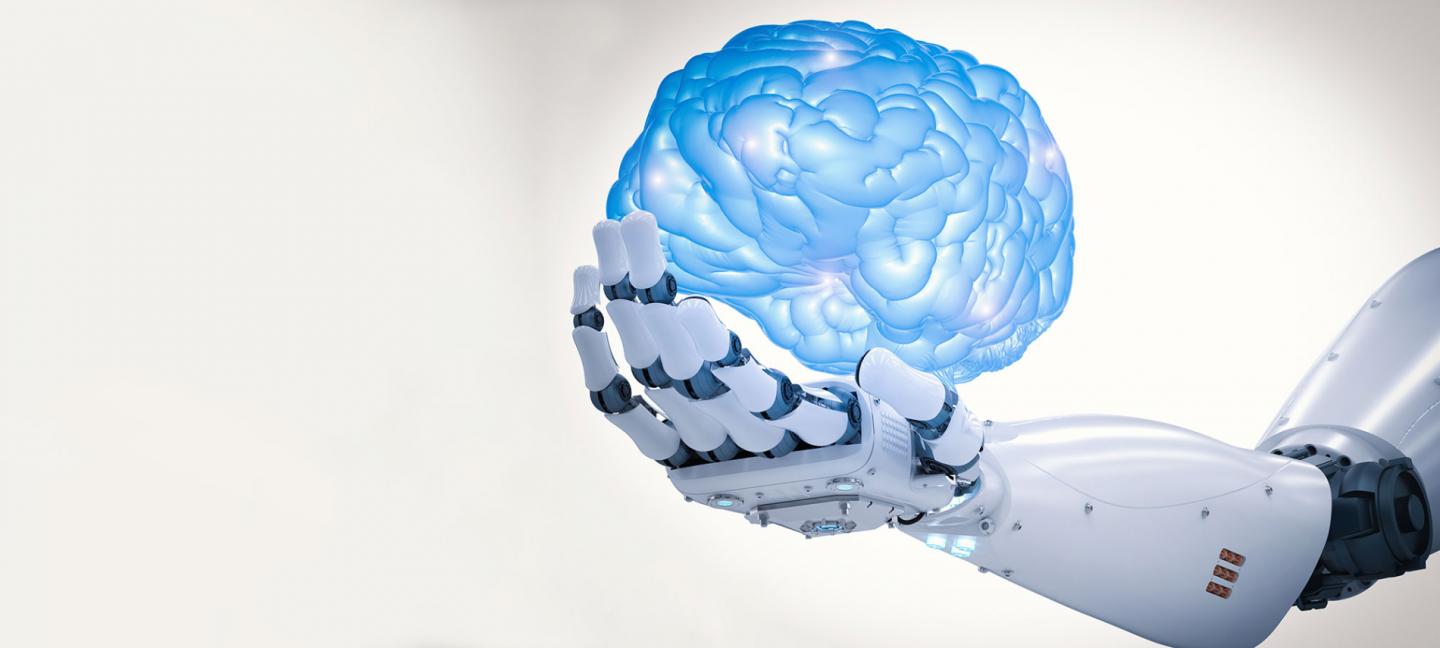
Phonlamai Photo - shutterstock.com
"We Need Interdisciplinary Cooperation on Equal Terms"
In its funding initiative on artificial intelligence (AI), the Foundation promotes close collaboration between the technical and social sciences in order to enable future-oriented AI research in the interests of society at large. An interview with the initiative's program directors.
During this interview, the program directors Franz Dettenwanger and Hanna Wielandt talk about the origins of the initiative "Artificial Intelligence and the Society of the Future" and provide insight into the goals and application procedure.
In its initiative on artificial intelligence, the Volkswagen Foundation supports interdisciplinary consortia. What does the Foundation hope to gain from the initiative?
Dettenwanger: In the area of "artificial intelligence", we are currently experiencing a rapid technological development which is associated with far-reaching social effects. This needs to be considered and reflected upon at an early stage, especially on the part of science. To this end, we believe that the social sciences and the humanities must work together with the technical sciences at eye level as early as possible. On the one hand, we hope that the initiative will significantly strengthen such interdisciplinary cooperation, which has so far been anything but a matter of course. On the other hand, we expect the associated change of perspective to lead to new insights and solutions with regard to the opportunities and threats of AI.
What prompted this orientation of the funding initiative?
Dettenwanger: One of the starting points for our considerations was an international workshop on "Robotics in the 21st Century: Challenges and Promises" sponsored by the Foundation in 2016, at which several representatives of the technical sciences said something along these lines: "We need the help of other disciplines. We need experts from the fields of ethics, law and the social sciences to investigate the impact of AI systems on society before it is too late". So we decided to act.
Wielandt: At the same time, in parallel with the Computational Social Sciences funding initiative, we had set up an offer for young researchers wanting to approach socially relevant research questions with the help of new technological methods. Our AI funding initiative takes up both these strands: The research projects should not just focus on technology or a purely social-scientific issue, but should bring the two together. In the initiative, interdisciplinary collaboration is taken very seriously. Moreover, it is a condition that the cooperation between the disciplines holds promise of being on equal terms, from which hopefully all participants will benefit.
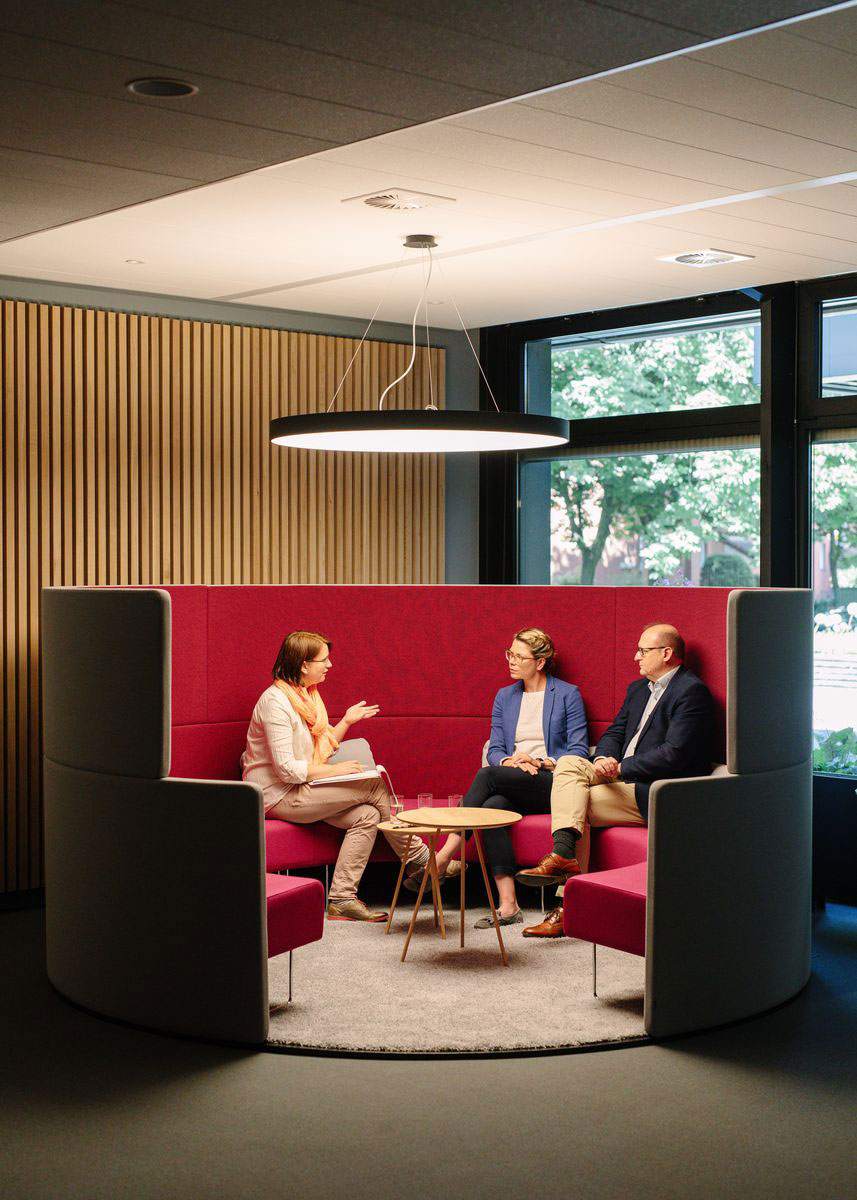
Gesa Jones (left) in conversation with Hanna Wielandt and Franz Dettenwanger
How did you go on to develop the funding initiative?
Dettenwanger: Before the Board of Trustees was to approve the initiative, we wanted to find out whether there was sufficient demand in the scientific community and how realistic it could be to implement such a form of interdisciplinary cooperation, which, although easy to formulate, is far from self-evident or easy to put into effect. We therefore held a one-week workshop in 2017 titled "Artificial Intelligence and its Impact on Tomorrow’s World". This took place in Einbeck with about 50 selected researchers from the above-mentioned disciplines. In addition to current topics, the workshop focused on the question of what challenges arise in interdisciplinary cooperation, what opportunities it offers and how cooperation can be prepared in such a way that all the disciplines really benefit from the change of perspective and work together on an equal footing – and not in a constellation in which one of the disciplines is possibly looked upon as playing a lesser part.
On the one hand, the workshop illustrated the problem of the sometimes very different research cultures and languages, but also the potential for new and promising insights and findings through the project constellations. In the end, we were convinced that a thematically and discipline-oriented funding program would be rewarding for the German research landscape. In November 2017, our Board of Trustees subsequently decided to establish the initiative, making us one of the first German sponsors to offer such funding.
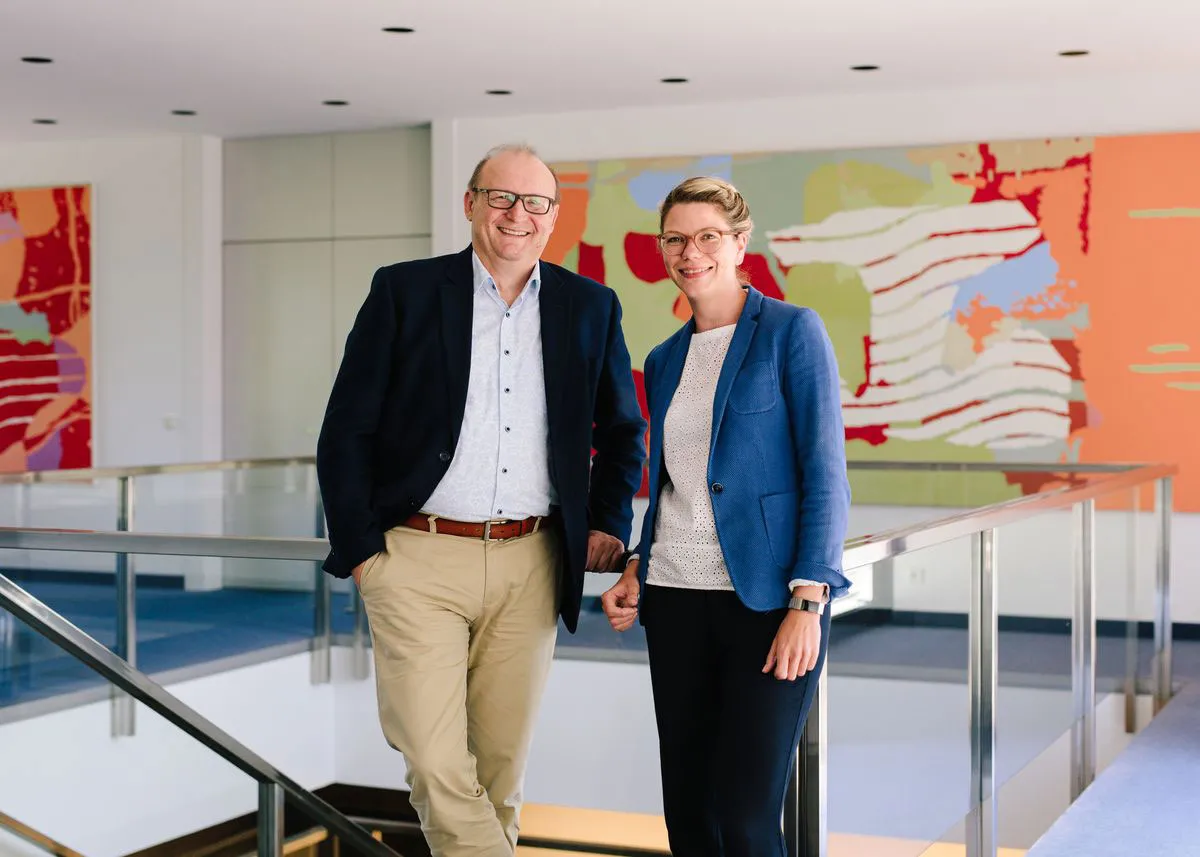
Hanna Denecke and Franz Dettenwanger
As part of the initiative, the Foundation is supporting "Planning Grants" for the first time. How did this come about – and what are they intended to achieve?
Wielandt: One result of the workshop was that it makes sense to give the research teams a kind of "discovery phase". That's why we created the Planning Grants. A Planning Grant is to facilitate the search for cooperation partners from other disciplines, put the team together, and jointly concretise the research question. As already mentioned, researchers often first have to find a "common language". However, in order to convince the review panel, a rough idea must obviously exist from the very beginning.
Is a Planning Grant a prerequisite for receiving a Full Grant?
Wielandt: No, it is an optional offer from the Foundation. When applying for a Full Grant, everyone can join in the race; having received a Planning Grant does not constitute a formal advantage. These are quite separate funding offers.
How did the first round of calls for proposals of the initiative go?
Dettenwanger: We were able to support six Full Grants and 19 Planning Grants in the first round. We were quite surprised that so many teams applied for the latter; a total of more than 120.
So the Planning Grants are well received?
Wielandt: The fact that Planning Grants were generally seen to be a useful funding instrument is evident from the feedback we receive from applicants. Even if they are not successful in the second stage, they tell us that they already get a lot out of going through the discovery phase. We have now also set up such preparatory phases in other initiatives: For example in "Change of Course – Exploring New Research Territories between the Life Sciences and Science or Engineering".
Which sort of project has a chance of being funded under the AI initiative?
Wielandt: We are explicitly looking for high-risk projects and are quite prepared to accept applications for which the outcome is simply not yet clear – visionary projects capable of opening up realistic future scenarios. It is also very important to us that international collaborations are established and that German science is positioned internationally here. Among other things, the review focuses on how the team is put together. Is the topic really innovative and relevant? What added value can be expected from such interdisciplinary cooperation; is there potential for new methodological approaches, and how does the project team plan to communicate the results to the public.
What does the application process for Full Grants and Planning Grants entail?
Wielandt: The "Information for Applicants (PDF)" contains all important information about the initiative. In the case of Planning Grants, we check in-house whether the application complies with the program's guidelines. The review panel then assesses each application in brief assessments. In the case of full grants, we first check in-house that the submitted outlines fulfill the formal requirements before starting the actual review process. Then, in what we call “quick assessments”, the review panel examines each proposal and decides which teams will be invited to submit full proposals. Our info-graphics on the application and selection procedure provide a good overview of the time schedule and the individual steps.
Who will review the applications?
Dettenwanger: An interdisciplinary and international review panel consisting of eight to ten persons. We select the reviewers in such a way that all participating disciplines are covered, so we have sufficient expertise on the specific topics available. Accordingly, each panel is composed somewhat differently. It is crucial that the proposals are discussed jointly from the perspectives of the different disciplines.
Wielandt: We are always on the lookout for suitable experts to sit on our review panels. In this respect, of course, we find ourselves in competition with other institutions – and the fact that the topic of "artificial intelligence" is booming does not make the search any easier.
What kind of feedback are you getting on the initiative?
Dettenwanger: The feedback from the scientific community is that the Foundation has struck an important chord with the initiative and created a much needed offer by its interdisciplinary orientation. The number of applications and enquiries we have received leaves us in no doubt about this and encourages us to further develop the initiative.
What is the significance of science communication within the funding initiative?
Wielandt: The developments in the field of "artificial intelligence" have a very concrete impact on society – so we attach great importance to a well thought-out concept of science communication. We like to see that the project proposals take the topic into consideration from the very beginning. By the way, even ongoing projects can apply for support in this area through our "Science Communication and Knowledge Transfer" program.
What is the next important step for the initiative?
Wielandt: For November 2019, we have invited all the funded projects to a Kick-off conference "Artificial Intelligence and the Society of the Future" at the Herrenhausen Palace conference center. There are thematic overlaps between different research projects, and this meeting will provide an excellent forum for discussion, exchange and networking. Not least in view of the further development of our funding portfolio, it’s a wonderful opportunity for us to take a look behind the scenes of the research projects and get to know the people involved. Such opportunities for a face-to-face with the researchers who carry out the projects we support is one of the most enjoyable aspects of our work.

